Liberation Work
|
Reparations: Calling All Program Evaluators and Data Analysts In this workshop series we unpacked several topics, moving them to the center of evaluation professional development. And while we wait for a revolution, we’ll settle for a different r-word: Reparations. In the past few years, reparations as a policy agenda has gained prominence. What keeps reparations off the table, even now, as foundations pour millions into racial equity investments and new diversity, equity and inclusion portfolios, and organizations and government entities submitting their best ideas for consideration? Bending science explains part of it. Bending
science describes the manipulation of the scientific process and data
for political purposes. In this workshop series, we’ll read a piece that
describes the use of “the life and death” analogy of one Milwaukee and
one non-Wisconsin neighborhood to justify redlining, divestment, and
ultimately “renewal” and "rebirth" through gentrification and resident
displacement. The use of science to legitimize misplaced analogies is
one example of how bending science occurs. There are many other ways
bending science shows up in the stories we tell as evaluators. We know
that colonialism and anti-blackness heavily influence our methods and
analysis. In this workshop, we’ll explore reparations as a way to study
these mechanisms. |
| The Uprising Viewing Party An opportunity to engage with musician and activist, Pravini Baboeram, the creator of The Uprising, a music documentary that tells the story of resistance against racism and colonialism in the Netherlands, UK and France. Members of the evaluation community came together to discuss the film, its vision for the future, and what it means for evaluation and learning. One academic and activist in the film challenged us to think about: “It’s in the struggle itself that new questions emerge that we have yet to foresee. Do we have the humility and the capacity for self-reflection to recognize those new questions as they emerge?” Do we? |
A Critique of Capitalism While COVID-19 exacerbates the cruelties of our economic and political systems on a global scale, it also creates an environment ripe to continuously critique capitalist values and frameworks. We ask: How can we work toward the liberation of ourselves and others if we are capitalist evaluators (un)intentionally serving a profit-over-people agenda? What would it look like to investigate unregulated capitalism in your next evaluation or explore data metrics related to the impact of privatization on the people you serve? Since 2011, we have asked you to call out programs and policies if they serve white supremacy, and in Wisconsin have promoted an environment where it is increasingly supportive to do so. We are now asking you to call out failed economic and political policies. This webinar is a centering space to help you start your next evaluation. Watch 2-Hour Lecture |
Dos and Don’ts for Evaluation During Protests Don’t use research or evaluation to delay the reforms and policy overhauls that can be done today. This dos and don'ts list was created during the 2020 uprisings. The armored vehicle picture was taken on the east side of Milwaukee, where there are now several shotspotters erected in 2021-2022. |
|
| Historic Meeting with African Evaluators and Leaders We are working to create a pipeline for evaluators of color and other underrepresented groups (e.g., LGBT evaluators, evaluators from low-income communities, and non-college enrolled youth evaluators). Our strategy is simple:
|
WRITings and |

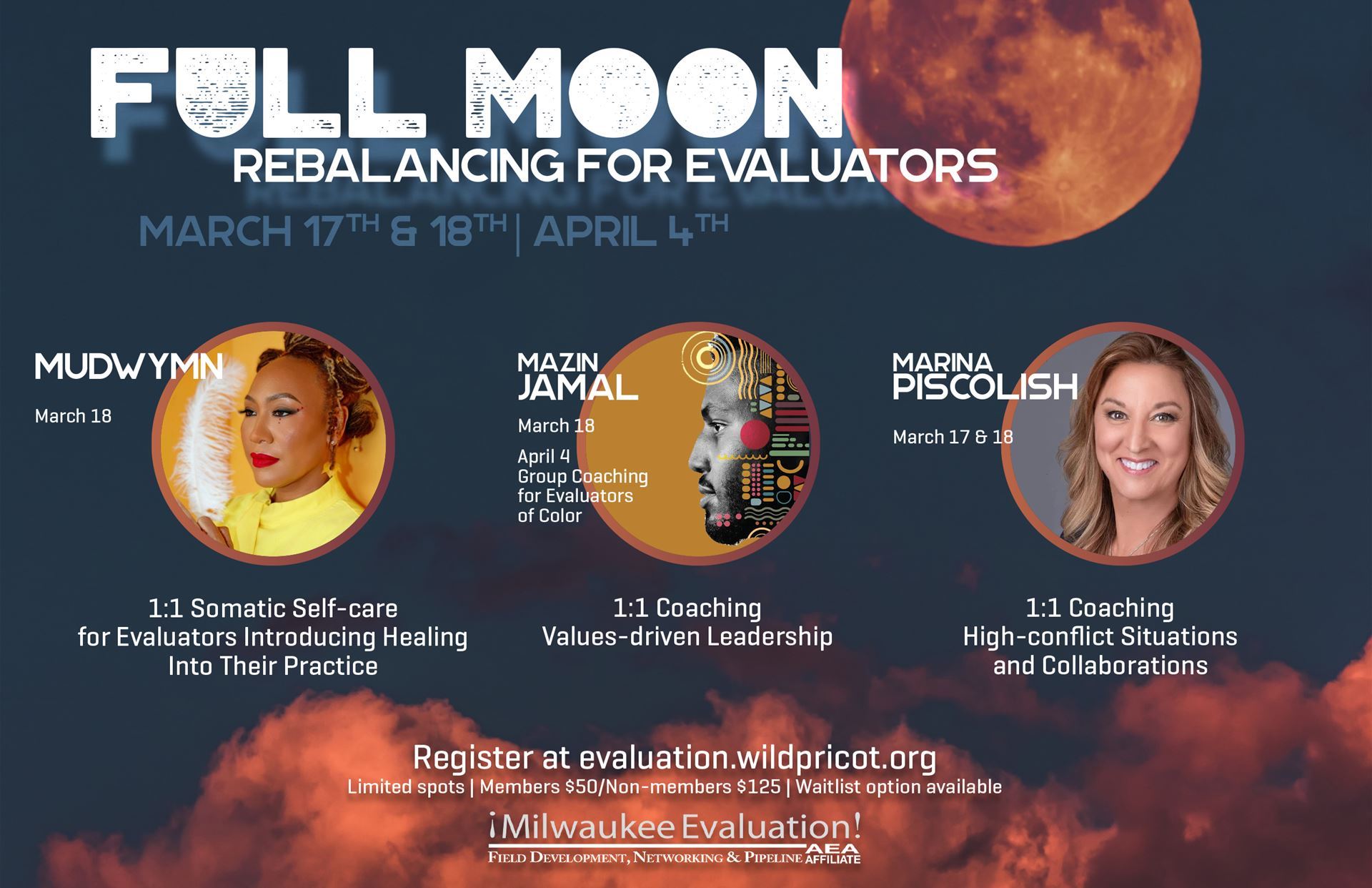
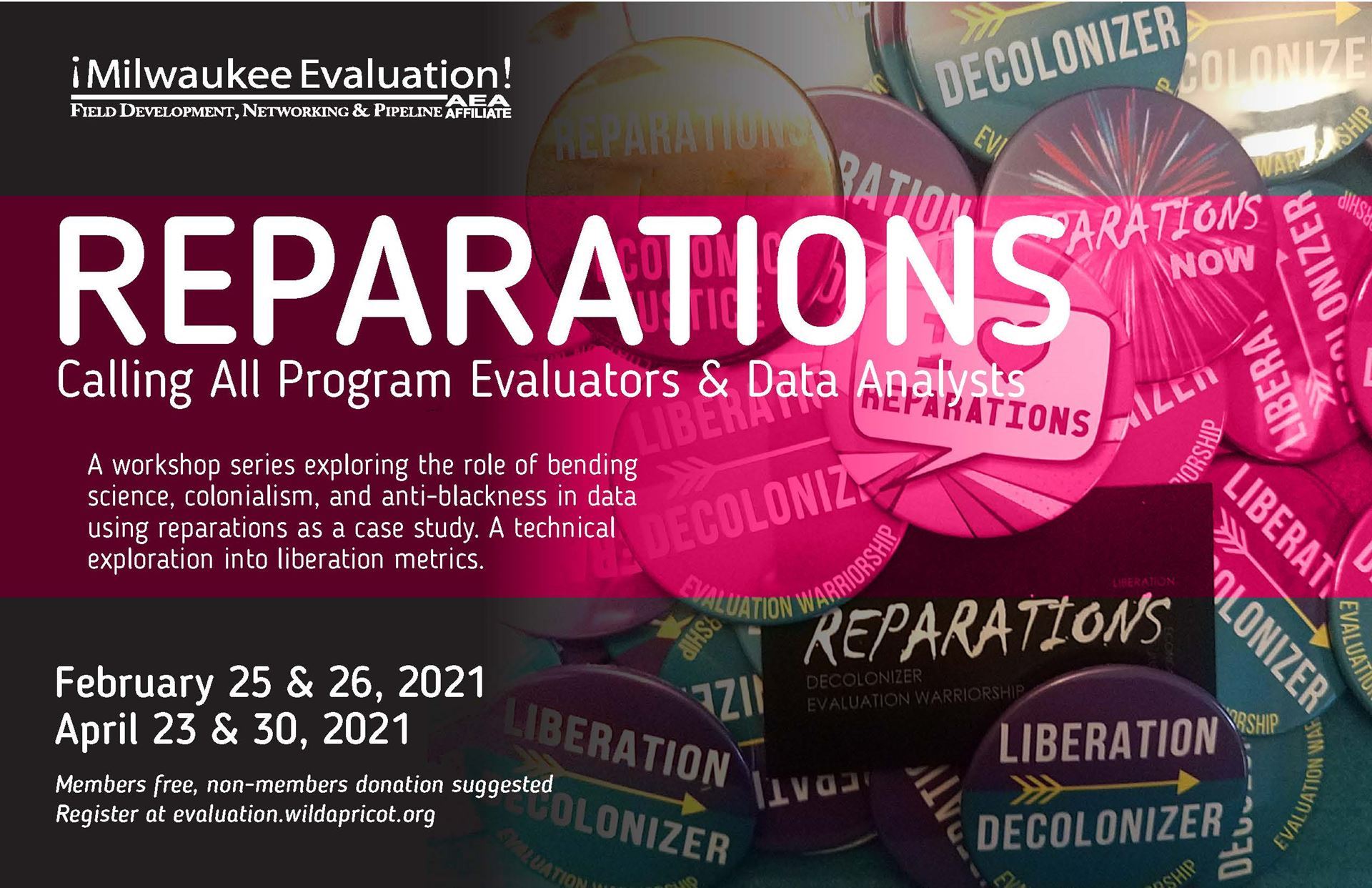
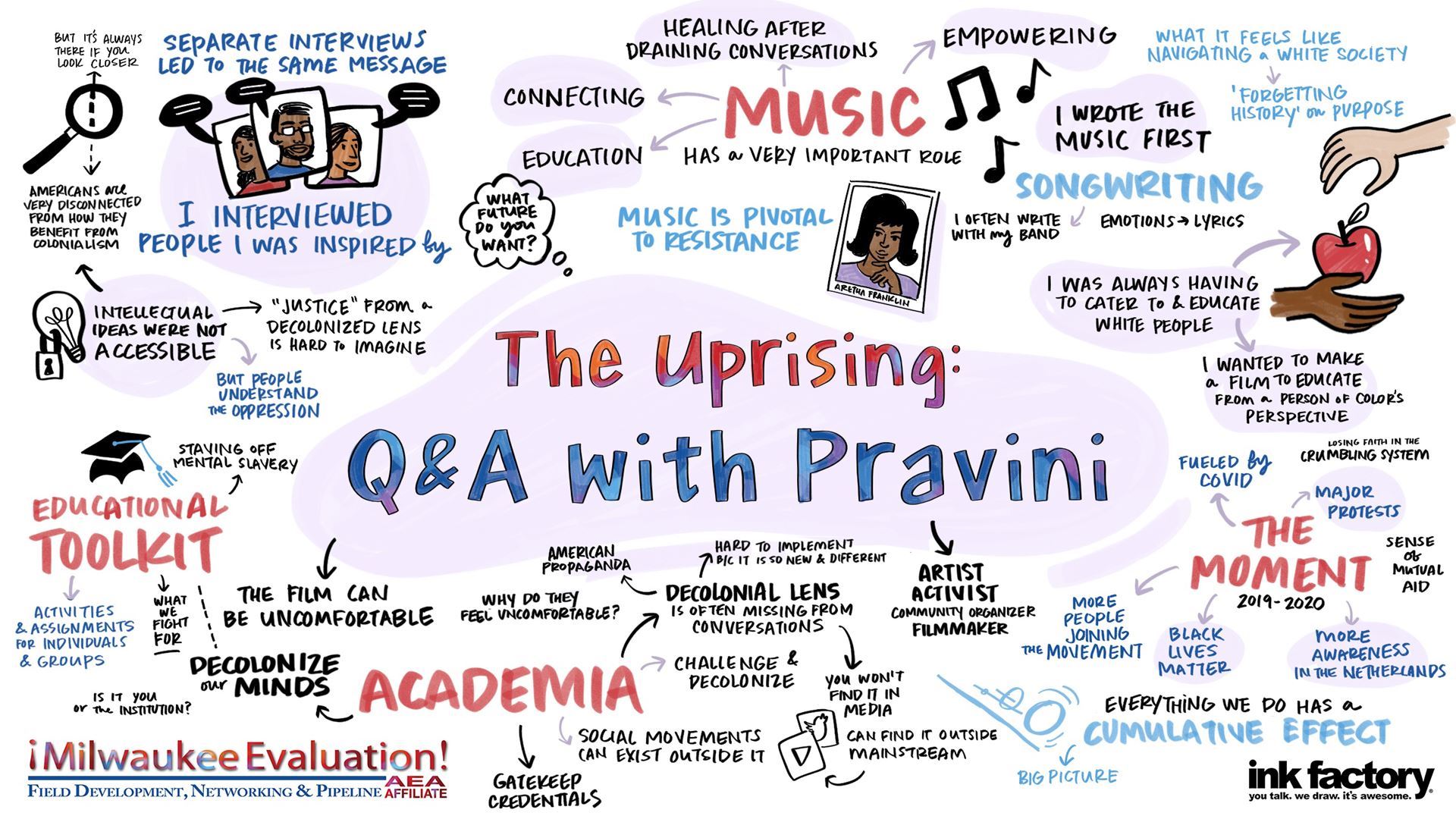

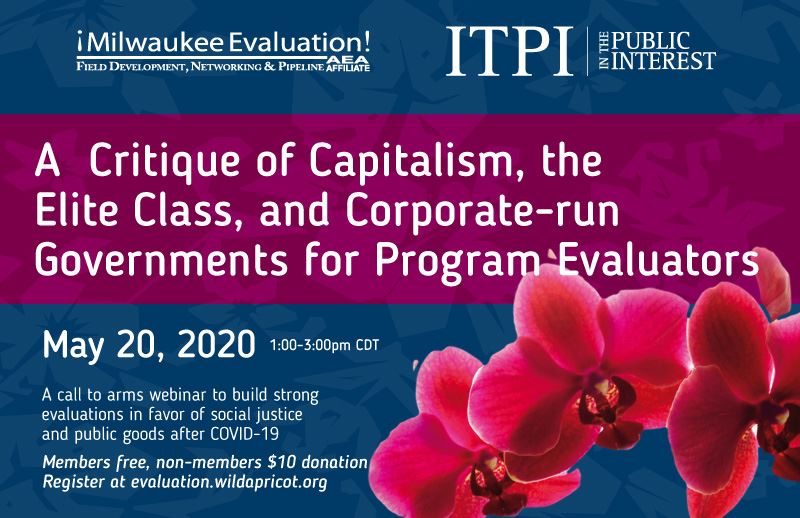
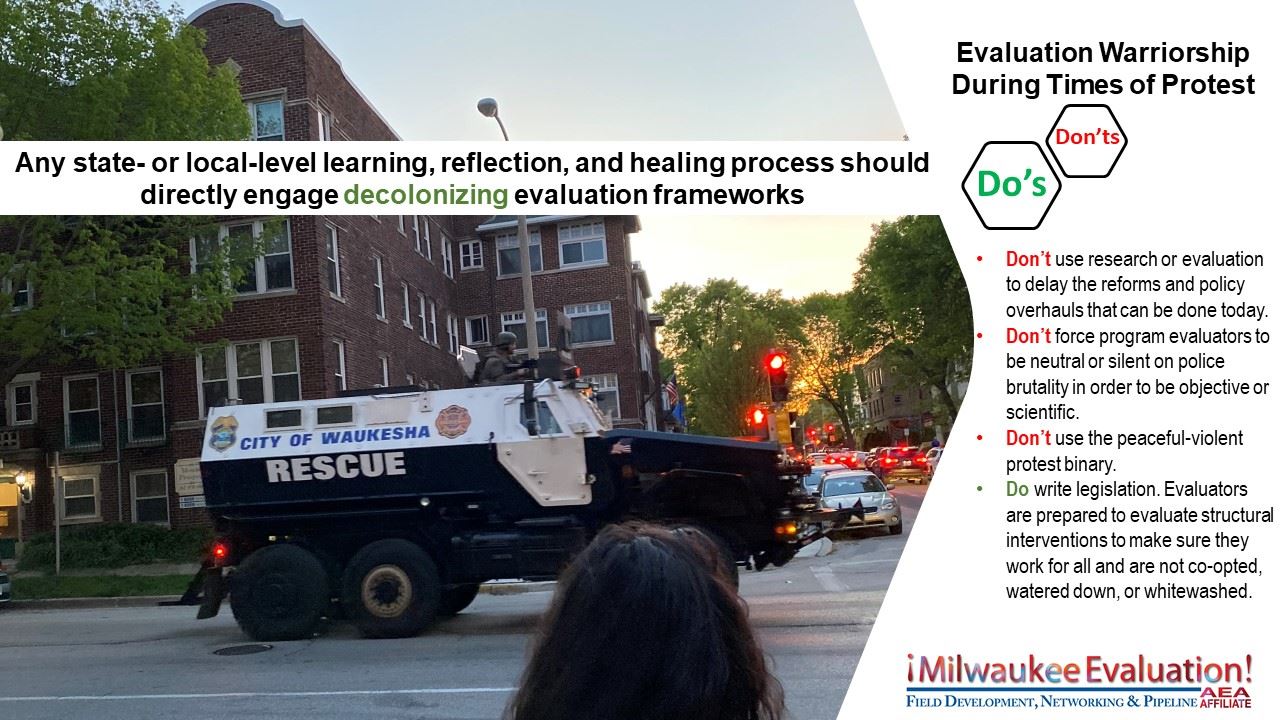
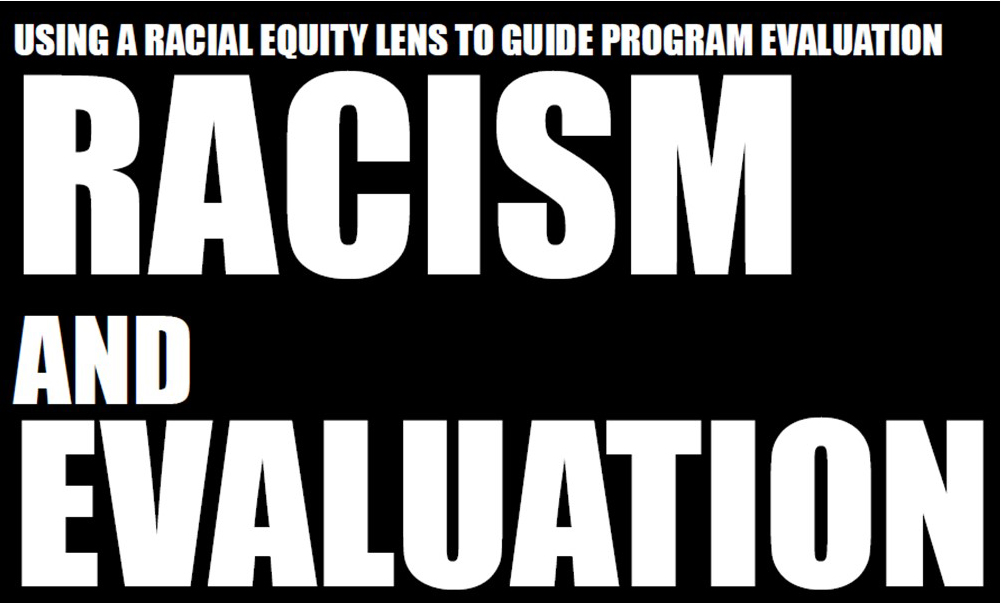
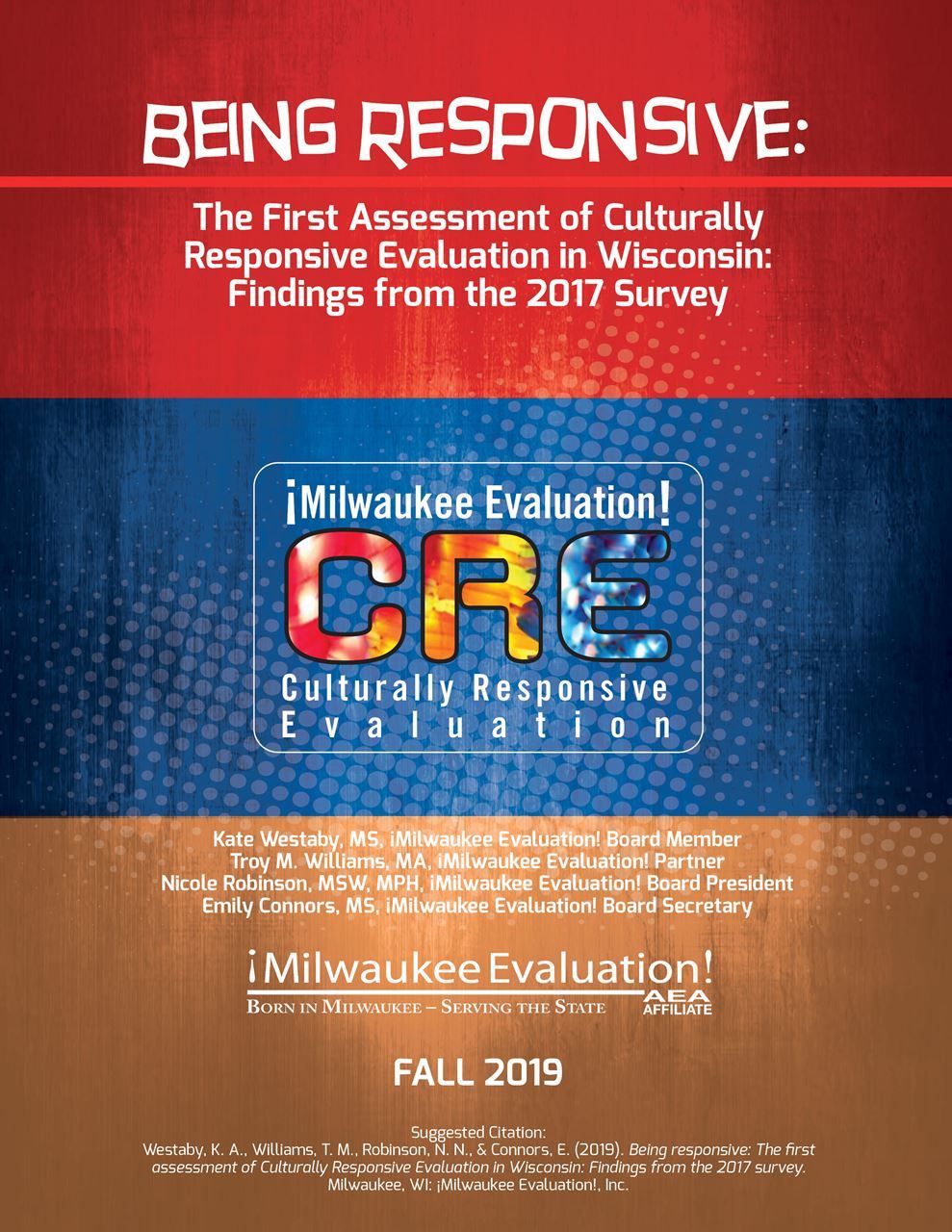
.jpg)

